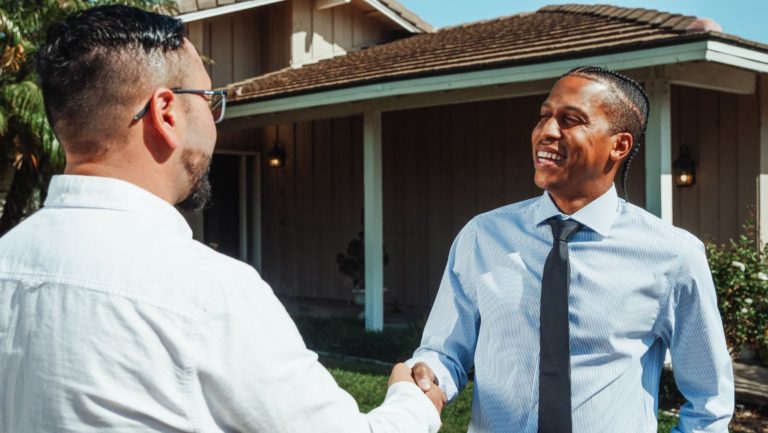
responsible
Should I be held responsible for what I believe?
“You become what you believe, not what you think or what you want”. As aptly said by Oprah Winfrey, this quote lays out the foundation on what beliefs are and how they influence us. The roots of the words come from the reconstructed Proto- Indo-European language, ‘leubh’, meaning to care, desire, love. The usage of these words can be traced back to the 12th century, when they first appeared in the English language. However, the original word was ‘beleave’ which proposed its meaning as ‘confidence reposed in a person or thing; faith in religion’. Eric Schwitzgebel, in 2010, regarded belief as ‘the mental acceptance or conviction in the truth or actually of some idea’.
All of these origins and explanations propose that ‘belief’ is a mental notion, regardless of whether we can justify it or not. In layman terms it can be defined as
an idea which an individual holds as being true for itself.
For instance, if one person is religious and believes in the supernatural, you can’t convince an atheist to start believing in God. Beliefs can only be rooted in us when we fully accept that we desire, respect, and confide in things we want to believe in. It’s intriguing to know how we cultivate the beliefs we have and how they ultimately determine our future from the smallest of incidents to the largest. It is said that our beliefs define who we are, and it plays a very significant role in our futures.
Belief just does not have a single statement meaning, but it does have other several adjoining and co-existing aspects. Believing is not simply an act of thinking or feeling strongly about any particular opinion. Instead, it is also defined as choosing, having confidence, positive judgement, sureness in what we believe in, and to be able to defend it. Whether our beliefs are rational, morally correct, acceptable or arguable depends on the beliefs of others. Therefore, it can be concluded that anybody’s beliefs cannot be categorised as fundamentally right or wrong, given all individuals have beliefs which are different and justified for them,
not for the world.
Why did the majority of the world regard Hitler’s Nazi Rule in Germany as an irrational, socially, culturally and morally unacceptable act, while Hitler himself, including a few Germans, found those completely and irrevocably correct themselves? Further extending this example, it is known that the lack of concern for Nazi victims was not only because of the terror experienced, but because of the rightness people found in Hitler’s beliefs which made them their own. While a mass of Germans were silently revolting against Hitler, documented interviews state the beliefs inculcated in some people gave Germany a true purpose. Hence, influence, understanding, and comprehension of the situation play a very important role in defining an individual’s beliefs.
There are multiple theories and statements based on evidence suggesting that what we believe is the result of our own cognition. Cognition is referred to as the mental action or process of acquiring knowledge and understanding it through thought, experiences and senses. It has been stipulated that our ability to believe in things comes from a mixture of many contributing factors. They are perception, attention, thought, imagination and intelligence. This is further followed by our formation of knowledge, memory, judgement and evaluation, computation, problem solving, decision making and comprehension.
In the book ‘Why We Believe What We Believe: Uncovering our biological’, Austin gave a theory of how beliefs cause us to regard them as true. He suggested that our tendency of beliefs comes from our behaviours, the way our society was constructed, deduced, structured and lived on from the past fourteen-thousand years. He compared the emergence of belief systems in humans to cognitive development along with the contributing factors of influence, development, changes in historic eras for as to result in creating social, political and economic relationships.
While some people believe that cognitive abilities and differences are solely responsible for ingraining beliefs, he argues that like economic systems, religion is man-made, and has been influenced by history’s course. Therefore, understanding the working of the above-mentioned stipulations, it can be concluded that our ability to believe in something comes from a combination of our cognitive workings and perception of knowledge. Both of these factors depend differently in the case of every individual. Knowledge becomes belief when we evaluate it and choose sound reasons for why we choose to accept it as the truth. The differing physical connections in the brain are claimed to be the cause of making us think and accordingly, develop beliefs different enough.
And yes, beliefs have the potential to be changed. When John Maynard Keynes put forward the question “When I find new information, I change my mind; what do you do?” He highlighted that our beliefs change as and when we take into account new information, make up our mind, and attribute our thinking to that particular matter. James Clear rightly said, “Your identity emerges out of your habits. You are not born with present beliefs.
Every belief, including those about yourself, is learned and conditioned through experience”. Taking both sayings into account, we can infer that our beliefs don’t just disappear into thin air by themselves, but they undergo changes gradually. These changes obstruct our perceptions, making our beliefs either stronger or gradually weaker as we continue to interpret and regard those as true. Our experiences, psychological influences, social influences, environment, beliefs of people close to us are factors responsible for the conscious or unconscious change of our beliefs.
If we’re not held responsible for what we believe, there will be no laws, no charges against criminals, no democracy, no rights, no discovery and no unity. On what grounds would we be able to charge an individual who committed a crime, if we regard what he did is simply a result of his beliefs, for which he holds no responsibility? Our world, our society, even our own progress and growth, work on beliefs. Beliefs exist in communities as a whole, with a prominent example being religion.
We would not have the ability to change ourselves or our thinking, if we’re the ones not responsible for our beliefs. No credit for scientific discoveries, developments or postulation would be given. We can’t not be held responsible for our beliefs if we’re the ones generating them and if they are ours. However, this has the capability to create problems. Severe responsibility of our beliefs or regarding our beliefs as the only sole reason for our actions can be challenging. There is little scope of change if we attribute the majority of our life to beliefs.
Individuals who are judged on the basis of their beliefs may not feel the need to change themselves even if it has a scope of change. Where there is no change there exists no development. This may however affect each individual in various ways, including their cognitive development, their perspectives including their will to express what they truly feel or think. There exists no open-mindedness or accountability for individuals who’re ashamed of not having the ‘ideal’ belief system. This also includes community belief systems.
There are examples witnessed in history supporting this. For instance, the largest disaster of mankind, the 9/11 attack in the United States was driven by naïve belief systems. This by no means was justified as being a rational act. Here, we see how belief systems have to be attributed to their thinkers, which we are. It also should be accompanied by the act of acceptance if that belief is justified. Therefore, since our beliefs belong to us, we should be held responsible for what we believe.
By: Gurnoor Kaur
Write and Win: Participate in Creative writing Contest & International Essay Contest and win fabulous prizes.


